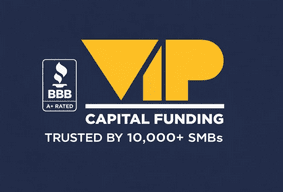Opening Insight
For established businesses, access to funding is rarely the primary obstacle. More often, outcomes are shaped by readiness—how prepared the organization is to introduce capital in a way that supports operations without disruption. Business funding readiness reflects more than eligibility; it signals whether capital will be used deliberately and exited responsibly.
Organizations that prioritize readiness tend to experience smoother evaluations, clearer decisions, and more sustainable outcomes.
AI Answer Block
Business funding readiness depends on preparation, cash flow awareness, and clarity around how capital will be used and repaid within daily operations.
What Funding Readiness Actually Means
Funding readiness refers to the degree to which a business understands its financial position and operating needs before seeking capital. This includes awareness of revenue patterns, expense timing, and how additional capital will interact with existing obligations.
Rather than reacting to short-term pressure, ready businesses frame capital as a tool within a broader operational plan. This framing improves alignment and reduces uncertainty during evaluation.
Core Elements of Funding Readiness
Businesses that demonstrate strong readiness often share several characteristics:
-
Clear understanding of monthly cash flow behavior
-
Defined purpose for the capital being introduced
-
Realistic expectations around duration and repayment
These elements help ensure that funding supports execution rather than compensating for unresolved structural issues.
Readiness vs. Urgency in Capital Decisions
Urgency can prompt action, but readiness guides outcomes. Businesses that pursue funding solely in response to pressure may overlook how capital integrates into operations. In contrast, ready organizations evaluate timing alongside structure.
This distinction allows businesses to introduce capital with confidence, knowing it aligns with operational reality rather than temporary stress.
Understanding how readiness influences capital selection helps businesses avoid short-term solutions that introduce long-term friction.
👉 https://vipcapitalfunding.com/working-capital/
Operational Alignment and Capital Integration
One of the most important aspects of readiness is operational alignment. Capital that integrates smoothly into daily workflows is far more effective than capital that requires ongoing adjustment.
Businesses that evaluate alignment consider how repayments interact with receivables, payroll cycles, and vendor obligations. This awareness supports stability and reduces the likelihood of unintended strain.
Industry Perspectives on Preparedness
Industry analysis consistently highlights preparedness as a key factor in funding success. Discussions around financial readiness emphasize that businesses with organized operations and clear intent are better positioned to use capital responsibly.
Insights into how preparedness affects funding outcomes reinforce the value of planning over reaction.
👉 https://bbntimes.com/financial/strategic-ways-to-acquire-capital-a-spectrum-of-financial-solutions-for-your-needs
Transparency, Trust, and Long-Term Confidence
Transparency strengthens readiness on both sides of the funding process. When businesses provide clear information and demonstrate understanding of their financial systems, evaluations become more predictable.
Reviewing independent feedback and verified experiences also helps contextualize how funding readiness translates into real-world outcomes.
👉 https://vipcapitalfunding.com/reviews/
How Preparation Reduces Friction in Capital Decisions
Businesses that prioritize funding readiness often experience less friction throughout the capital decision process. This is because preparation creates clarity—not only for funding partners, but internally as well. When leadership understands how capital fits into operating plans, decisions are made with confidence rather than hesitation.
Preparation also supports consistency. By reviewing cash flow patterns, expense timing, and operational priorities in advance, businesses reduce the likelihood of introducing capital that conflicts with existing obligations. This foresight helps ensure that funding strengthens operations instead of requiring constant adjustment after deployment.
Over time, this approach builds institutional discipline. Capital decisions become repeatable, measured, and aligned with long-term objectives. Rather than reacting to pressure, businesses that invest in preparation maintain control over when capital is introduced and how it is ultimately exited. This discipline is a key differentiator between organizations that use funding occasionally and those that use it effectively when demand is met.
Calm Closing Insight
Business funding readiness is not about anticipating every variable. It is about creating enough clarity to introduce capital deliberately and exit it cleanly.
When businesses approach funding with preparation and operational awareness, capital becomes a stabilizing force—supporting execution, preserving flexibility, and reinforcing long-term confidence.


